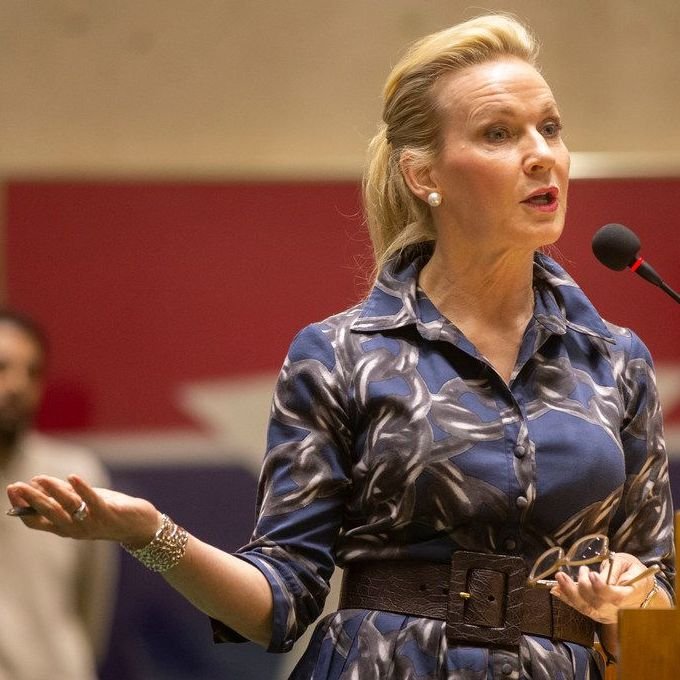Increasing diversity and inclusion within the patent ecosystem, while protecting marginalized inventors.
Inventor Advocacy
We fight for inventors to be rewarded for their ingenuity.
Tomima Edwards
Inventor, Topsytail
Tomima is an American entrepreneur, author, and inventor of TopsyTail, Halo Hat and Bowrette. She is the founder of HerRoom and HisRoom, an online lingerie and men's underwear retailer based in Dallas, Texas.
Edmark’s inspiration came after she saw a woman wearing a French twist hairstyle in a movie. She thought other women might appreciate a hair accessory that would allow them to more easily create intricate hairstyles. After receiving her patent Tomima used $5000 to found TopsyTail Corp to market and sell the product. TopsyTail earned more than $150 million in revenue.
The Telebrands company, owned by the Khubani brothers, had a known business formula that took advantage of successful products with IP protections. They had established strong “big box” retail partnerships. They would find a hot new product on the market that did not yet have inroads to big box retailers. They would then quickly manufacture an almost identical version to offer to these retailers at a significant discount along with a written promise of indemnification (which reduces the risk for the retailer if they are sued for selling patent infringing products). Knowing how long IP litigation takes (3 or more years), they use this to advantage by quickly profiting from the invention, destroying the market, and then stalling any litigation in court for many years.
The Khubanis had attorneys skilled in this business model on retainer to execute. The inventor meanwhile typically loses the market and the cash to fight. The Khubanis also sometimes avoid triple damages (which the law provides) because they can sue to invalidate your patent. If the big box retailers valued intellectual property, the Khubanis would be out of business. The lawsuits around Topsy Tail were eventually settled and around 2000 Tomima sold all TopsyTail rights.
Juliette Fasset
Inventor, Flippy
Juliette runs Happy Products, Inc., the company that makes The Original Flippy. Flippy is the world's greatest iPad/tablet stand and is sold mostly through Amazon. Juliette’s husband Bruce, is co-author on the patent, and is an optical scientist and engineer.
Happy Products is a nationally registered WBENC business (Women’s Business Enterprise National Council) and supports their literacy partner: www.firstbook.org through product sales. The company also helps employ developmentally challenged adults through warehouse operations.
Back in 2011 there were very few soft tablet stands that did a really good job of holding the tablet or iPad in a perfect reading position. Most were made of hard metal or plastic, and they still required that the user provide extra support using their body. So she spent 2 years researching, thinking, drawing, examining, messing with, building and taking apart tablet stands. She formulated a concept around what she thought would work and what was missing in the marketplace. Bruce helped round out the concept to accommodate reading angles and height for support and did the CAD drawings.
Their provisional patent was filed in 2013 and published in 2017. Then in November of 2018 Flippy sold out on QVC in a single airing. $500,000 worth of product in 12.5 minutes.
Chuck and Amar Khubani own Ontel Products and AJ Khubani owns Telebrands. Both of these companies are based in New Jersey. People at Ontel and Telebrands, including AJ Khubani himself, bought 29 units of Flippy on Amazon in November of 2018 and immediately copied the product. They were selling on late night cable by February 2019 and by that summer their ripoff of the patented Flippy was in every major retailer in the USA and destroying the Flippy business on Amazon. This continued unabated for years.
Happy Products could not afford the multi million dollar defense required litigate against the Khubanis so the funds available were put into a reissued (strengthened) patent. That patent was awarded in March of 2021 and it was used to get the Khubani ripoff taken off Amazon, but they continued to sell it into other retail outlets. As of this writing in May 2022, the Khubanis still selling it through major retailers. Professional estimates of the loss via the Ontel/Telebrands patent infringement is well over $100m.
Molly Metz
Inventor, JumpNrope
Molly started jump-roping at age seven and she was competing internationally the following year. She won her first world championship at age ten and by 2002 had won five world championships.
In 2007, Molly was in a car accident, where she suffered major injuries. After healing and getting back into her jump-roping lifestyle, she learned that the old jump ropes could not keep up with her and move efficiently with her injury. So she began to design different styles to improve the versatility of the jump-rope.
Molly filed for the patent in 2009. This design includes a handle with a pivoting-eye-technology feature that reduced the degree of the wire in the handle to create optimal rotation of the rope, without it being directly linked to the handle. This design makes it the most precise speed and power jump rope in the world. Molly was granted patent U.S. 7,789,809 in 2010.
Infringers were already manufacturing and selling her product in countries like China and India the year her patent was awarded and Molly soon realized crossfit companies were buying her design from China and India. In an effort to license her technology in the US, she reached out to a large fitness company: ROGUE Fitness based in Columbus, Ohio. Without hesitation, ROGUE Fitness took her design and began importing from China and distributing it without a license, making an estimated yearly profit of tens of millions of dollars.
She acquired an attorney and brought the fight to ROGUE Fitness and the other infringers.
In response to Molly’s infringement suit, ROGUE Fitness sought invalidation of her patents by petitioning the PTAB. The PTAB (Patent Trial Appeal Board) was created in 2011 via the America Invents Act (AIA). The PTAB is an administrative court, filled with government employees, who are lawyers and not technical experts.
No one is as experienced as Molly is in the field of jump-roping. Her experience, her resume, and her knowledge in the field led her to develop a jump rope handle that increased speed, power, and reduced friction.
This design was never introduced into the market before, nor even thought of by others within the industry. The market success of this jump rope handle goes to show just how non-obvious it was. Yet, the PTAB “judges” took less than an hour to invalidate Molly’s patent - a patent awarded after 6 years of examination by three different examiners with several decades of cumulative experience.
Unfortunately, Molly is one of thousands of other inventors that have had their patents invalidated by the U.S. Patent Office – which has invalidated 84% of the patents reviewed under the AIA.
ROGUE Fitness and other companies are still manufacturing and selling Molly’s design.
Policy Action
We highlight and remedy injustices within the US patent ecosystem.





